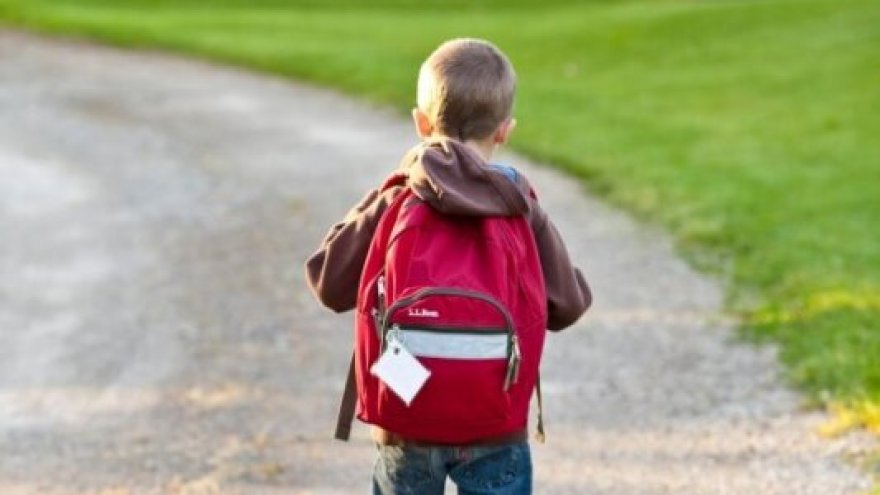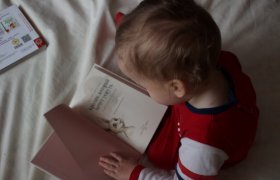How to Prepare Your Child for Their First Day of School

The first day of school marks not only a new chapter of your child’s life but one of yours too! Many people believe in the misconception that only children experience anxiety when nearing the date of their first day of school when in reality the parents are not excused from feeling nervous either. It’s an understandable feeling when facing changes and new things and neither you nor your child has to pretend to not experience it.
After all, the sooner you and your child overcome the school-related anxiety, the sooner you will be able to get used to and enjoy your newly formed routines and more importantly your child will be able to properly embark on their new personal development journey.
Talk with them about the future
As the school season approaches, you can start familiarizing your child with the idea of school, classmates, teachers, and homework by having them talk to a relative’s child who is in school already and likes going there. They can tell your child stories about how fun it is to spend time with your classmates during recess, or about what kind of assignments the teacher gives them and you can highlight the similarities between school (or at least the first couple of grades) and kindergarten as well if your child enjoyed going there.
When they are first told about having to switch from kindergarten to school, children tend to panic thinking they will have to jump right into the “big kid” period and that the days of coloring and building block castles might be over, which is why it’s so important to ease their anxiety about the first grade to avoid having them get an irrational fear related to going to school and adapting to the new environment.
Motivate them
One way you can get them used to the future activities is to buy them first-grade textbooks and browse them together and see if you can ease them into exploring the books alone and trying to complete some of the exercises there, if able. Though you have to let them know that there’s no shame in not completing it or not managing yet, after all, that’s why they will be going to school in the first place: to learn!
You can also rehearse with them at home how to hang their coats and how to zip them up themselves, as well as how to organize a few notebooks in their backpack properly. It helps prevent any sort of embarrassment the child could experience at the end of the class or at the end of the school day when all the kids are packing up their things and getting dressed and ready to leave. It might not seem like much, but to a child keeping up with their peers feels essential for fitting in well in a group. You should also teach them how to storage their meals properly, how to eat at school (provide plenty napkins just in case, show them how to avoid making a mess on their desk or even on their own clothes) and tell them beforehand what should be brought back home and what can be tossed out, like a preferred water bottle for example! If you plan on refilling it at home, make sure your child knows to bring it back even after it has been emptied.
Remind them that they are not alone
Another approach you can take to getting them used to the idea of going to school is to remind them that their friends are going to be joining them in class as well if it’s the case. Having a buddy already in the new surroundings can make for faster adapting, especially if it’s someone they’ve gotten along with since kindergarten or someone they grew up alongside. This approach also works if you get to know some of the future classmates’ parents and organize small get-togethers with them if you already know who else will be in your child’s class.
Something you should keep in mind at all time is to remain mindful of your child’s feelings, even after they have started school and seem to be adapting nicely to all the new things. It’s easy to just lose track of their actual happiness once routines must be carried out and once both of your schedules fill up, but communicating about what’s been happening at school, how your child is fitting in, how he likes his/her teacher and classmates and should prevent that from happening. Good communication between a parent and their child(ren) is essential in maintaining a good relationship and it will save everyone a lot of possible trouble later on. The more open a child is about talking to their parent about any sort of topic or plan, the less worrying the parent will have to do along the way concerning where their child is, if they’re hanging out with positive influences and so on and such a communication habit is better taught from a young age.
Always have a positive approach
Last but not least, don’t make it sound like the end of their childhood when you’re preparing them for the new responsibilities and routine. Avoid limiting their playtime just to get them used to less playing or by accompanying it with “you will start school soon, you have to think less about playing and more about homework”. Such an attitude only results in making the child see school and homework as some sort of punishment or grounding, which will not help in getting them used to school nor getting them to like going to class. It can really put a damper on their eagerness to learn and socialize if it means being forbidden from relaxing at home.
Naturally, their allocated time for playing will shrink, but it will happen by itself and it will feel more rewarding to do homework if they’re told they are allowed to play anything they want afterward as a way to teach them responsibility too.
If you keep all of the above in mind as you proceed to prepare your child for their first school day, you will soon find out how much easier the transition from kindergarten to school is and the changes in routines and lifestyles will no longer feel as sudden or as overwhelming as you may have first thought they would be.
Just be sure to get ready for the frequent school supplies shopping and good luck to both of you!






